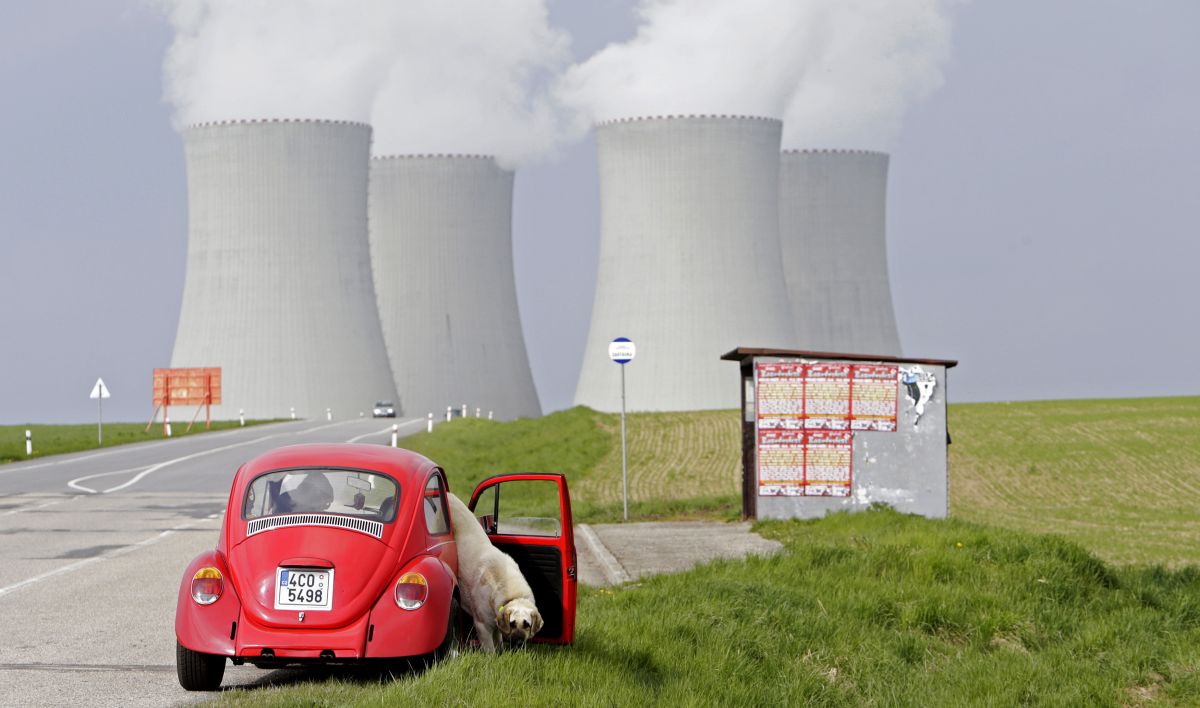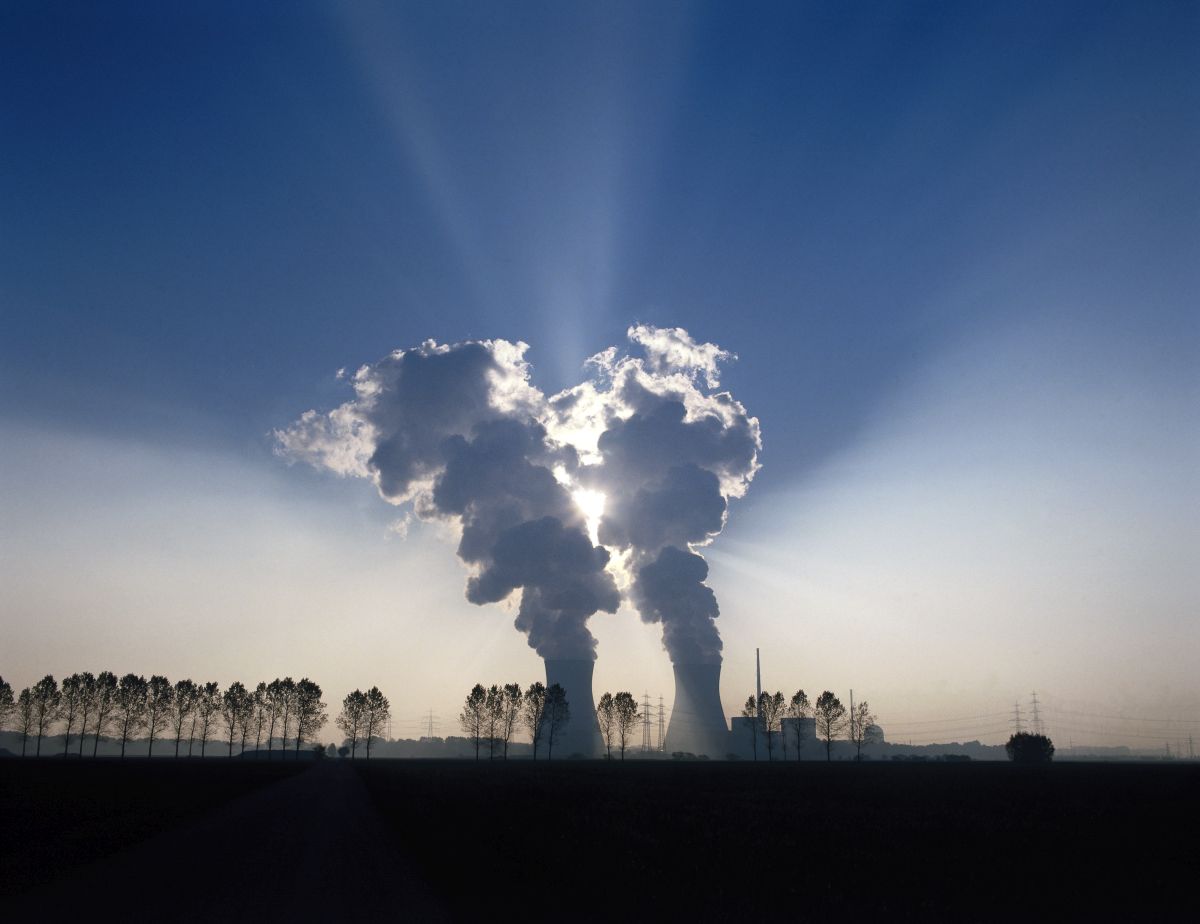New Perspectives for Nuclear Energy in the EU
EU countries opposing nuclear energy, mainly Austria and Germany, are trying to limit its development in the Union by using the dispute over the details of the “green taxonomy”. The Russian aggression against Ukraine, however, has strengthened the arguments of supporters of this technology. They present nuclear energy as a way to make Europe independent of Russian gas and oil imports while reducing CO2 emissions. The final shape of the delegated act supplementing the taxonomy and the date of its entry into force will significantly affect the future of new nuclear projects in the EU, including in Poland.
 David W Cerny/ Reuters/ FORUM
David W Cerny/ Reuters/ FORUM
Nuclear Energy in the EU’s Green Taxonomy
The regulation establishing a framework to facilitate sustainable investments (taxonomy) has been in force in the EU since June 2020. According to it, an economic activity can be considered environmentally sustainable if it significantly contributes to the achievement of the EU’s environmental objectives without harming any of them, meets minimum social safeguards (e.g., respect for employee rights), and meets the technical eligibility criteria specified in delegated acts. The draft of one such act presented by the European Commission (EC) on 2 February will have a decisive impact on the profitability of investments in nuclear energy. It allows investments in nuclear power plants (NPPs) to qualify, under special conditions, as environmentally sustainable, enabling them to obtain financing from the European Union.
The EC treats nuclear energy as a temporary solution supporting the low-emission transformation of the EU, with the reservation that it cannot hamper the development of renewable energy sources (RES). Only Generation IV nuclear projects (those with the highest safety standards and a reduced amount of waste) are to be supported without a time limit. Co-financing of Generation III+ reactors will be possible for investments holding a construction permit by 2045, while modernisation support for existing units will be recognised until 2040. The draft act also includes strict safety requirements regarding the management of nuclear waste.
Controversy over EU Financing of Nuclear Energy
Although the inclusion of nuclear power in the taxonomy was intended to accelerate European decarbonisation and unify the understanding of sustainable development in the EU, it deepens the divisions between Member States resulting from their approach to energy policy.
Countries opposing nuclear energy (including Austria, Denmark, Luxembourg, Germany, and Portugal) have been pointing out for years that the investment process for nuclear power plants (around 10-19 years) is too long in view of the need for an urgent response to the climate crisis. Also, the open fuel cycle (generating waste) is, in their opinion, inconsistent with the assumptions of the circular economy, and investing in capital-intensive NPPs may divert financing from RES. Austrian Climate Minister Leonore Gewessler identified the provisions of the EC delegated act regarding the recognition of nuclear energy as “green” technology as an example of greenwashing—creating the false impression that something is harmless to the environment—and announced that the issue will be brought before the Court of Justice of the EU (CJEU) if it enters into force. In a legal opinion commissioned by the Austrian government, it alleges that nuclear energy does not meet the criteria for making a significant contribution to climate change mitigation and is not a sustainable energy source. Luxembourg intends to join Austria’s complaint. Also, the German vice-chancellor and minister of economy and climate, Robert Habeck, negatively assessed the taxonomy project, stating that nuclear energy is unprofitable and dangerous. The German authorities had previously warned about their readiness to take legal action on the taxonomy issue, and at the end of February the Green party issued a resolution obliging its members of the government to take such a step.
Countries supporting nuclear energy (including Czechia, France, Hungary, Poland, Romania, Slovakia, and Slovenia) welcomed the EC’s draft. They emphasise that investments in NPPs will bring Europe closer to climate neutrality by replacing coal with clean and stable generation capacity, and will support the further development of still unstable (weather dependent) renewable sources. They also claim that half of the Member States use or plan to use nuclear power plants, which currently produce around 25% of the electricity consumed in the EU. They note that supporting nuclear energy is one of the basic obligations resulting from the Euratom Treaty binding EU members. At the same time, the nuclear industry is simultaneously satisfied with the inclusion of nuclear energy in the taxonomy and finds the new criteria too demanding as they may extend the payback period of new investments.
Consequences of War on the Nuclear Energy Debate
Russia’s invasion of Ukraine has led to a change in the dominant narrative in the EU regarding energy cooperation with Russia and, consequently, the structure of the European energy mix. The supply of energy resources from Russia—gas, oil, and coal—was considered stable and cheap by some EU countries (including Austria and Germany). The now predominant view is that the EU should become independent from Russian supplies, although the pace of this process and the means to achieve it remain under discussion.
The International Energy Agency, in its “10-point plan to reduce the European Union’s reliance on Russian natural gas”, published on 3 March, proposes as one of the steps to achieve this goal the extension of the operation of five reactors scheduled for shutdown in 2022-23 (three in Germany and two in Belgium). This, combined with bringing back online reactors that were serviced in France in 2021 and the commissioning of a new reactor in Finland, could reduce EU gas demand by several billion cubic metres (about 10% of current EU imports from Russia). This argument has been picked up by many European nuclear energy supporters, while at the same time intensifying pressure to limit Russian participation in the sector. Related to this, Czechia has excluded Rosatom from the Dukovany tender, Finland has suspended construction of the Russian reactor at Hanhikivi, and Hungary has come under heavy criticism for its desire to continue cooperation with Russia.
The need to reduce dependence on Russian gas initially also revived a discussion in Germany about the possibility of extending the operation of its three remaining nuclear power plants. On 8 March, however, the German government published the conclusions of an audit on the subject, which stated that it would be too expensive, and Vice-Chancellor Habeck declared that extending the operation of the plants would not help Germany. The Belgian government, on the other hand, has initiated measures to extend the operation of two nuclear power plants by 10 years to 2035.
At the same time, according to the EC’s communication “REPowerEU: Joint European action for more affordable, secure and sustainable energy”, published on 8 March, the only explicitly mentioned role of nuclear energy is to support the development of hydrogen technologies. This indicates strong resistance to nuclear power from some EU countries, forcing the EC to be cautious in its statements.
The debate on nuclear power in Europe is also influenced by the situation of nuclear installations in Ukraine. There is no radiological risk, but fighting occurred in the immediate vicinity of the Zaporizhzhia Nuclear Power Plant. The plant has been able to continue to supply electricity to users, although the load was reduced for safety reasons.
Conclusions and Prospects
As a result of the Russian aggression against Ukraine, political factors have come into focus in the discussion on the inclusion of nuclear energy in the EU’s debate on its green taxonomy, which has so far been dominated by technical and climate issues. Among other things, the German model of energy transition based on gas and the strong opposition to nuclear power have been undermined. On the other hand, France, which holds the presidency of the EU and whose priority was to keep nuclear energy in the taxonomy, shifted its attention to ending Russia’s war with Ukraine. Under the influence of an external threat, the strong polarisation of the Member States’ positions may be mitigated, but this does not mean there is consensus around the taxonomy. The debate also will be influenced by possible incidents in connection with the fighting around Ukrainian nuclear power plants.
The submission of lawsuits regarding the taxonomy to the CJEU by Austria, Luxembourg, and Germany could lead to delays in the implementation of nuclear projects due to the uncertainty of their financing until a ruling is made by the court. In the worst-case scenario, the CJEU could rule that the taxonomy is invalid or declare nuclear power as not complying with its criteria, which would diminish the profitability of new nuclear projects.
It is in Poland’s interest that the delegated act to the taxonomy proposed by the EC in February comes into force as soon as possible. This will ensure predictability of financing for the Polish Nuclear Power Programme and construction of Generation III+ reactors. It also will increase the chances of transforming the Polish energy sector while meeting climate targets, and in the perspective of up to 20 years will reduce dependence on fossil fuel imports.





